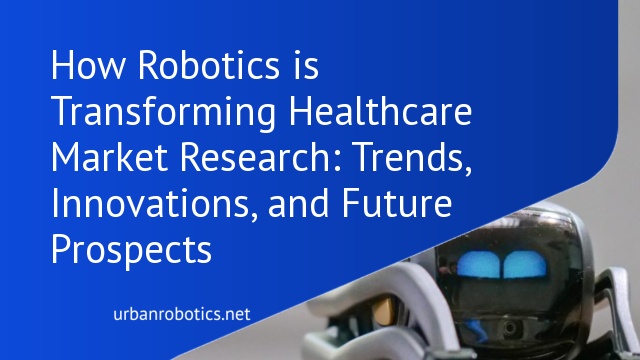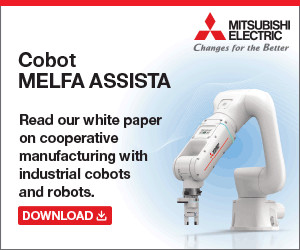Understanding Healthcare Market Research
Healthcare market research encompasses the systematic collection, analysis, and interpretation of data related to healthcare markets. It’s crucial for identifying market needs and preferences, guiding strategic decisions, assessing market potential, and understanding competitive dynamics. Through various methodologies like surveys, focus groups, and data analytics, stakeholders gain insights into patient behaviors, healthcare trends, and service performance metrics.
Effective market research should cover diverse aspects. Gathering demographic data provides insights into population health needs. Analyzing economic factors reveals market affordability and accessibility. Assessing technological trends highlights the adoption rates of innovations like telemedicine and robotics.
Innovative technologies redefine market research approaches. Robotics, for instance, enhances the precision of data collection, ensuring accurate and real-time insights. As we leverage robotics for data gathering and trend analysis, we witness more informed decision-making and strategic planning. This shift positions us to respond proactively to evolving market dynamics, ultimately improving healthcare delivery and outcomes.
The Role Of Robotics In Healthcare
Robotics plays a pivotal role in revolutionizing healthcare by improving precision, efficiency, and patient outcomes. Robots handle tedious tasks, assist surgeons, and provide consistent and accurate data, driving advancements in healthcare market research.
Types Of Robotics Used
Several types of robotics are utilized in healthcare. Surgical robots, like the da Vinci Surgical System, offer enhanced precision in complex procedures. Service robots assist in patient care tasks like medication delivery and transportation (e.g., TUG robots). Diagnostic robots, such as robotic endoscopes, enhance imaging and early detection capabilities by providing high-resolution views inside the body.
Innovations And Advancements
Recent innovations in robotics have significantly impacted healthcare. AI integration in robotics, such as IBM’s Watson, has improved data analysis and personalized treatment plans. Autonomous robots, like those created by Intuitive Surgical, perform minimally invasive surgeries with higher accuracy and reduced recovery time. Mobile robots in hospitals use machine learning to navigate and optimize logistics, increasing hospital efficiency and reducing human error.
Benefits Of Robotics In Market Research
Robotics in market research offers unparalleled advantages in healthcare. Key areas like accuracy, efficiency, and cost reduction make a substantial impact.
Accuracy And Efficiency
Robotics enhances the precision of healthcare market research, ensuring more reliable data. Automation and machine learning algorithms can process vast datasets rapidly. This efficiency enables quicker trend identification and more accurate forecasting. For example, survey-taking robots reduce human error, providing consistent data collection. This precision leads to better-informed strategic decisions, improving overall research quality.
Cost Reduction
In market research, robotics significantly lowers costs. Automated systems reduce the need for manual data collection, saving time and labor expenses. Maintenance and operational costs also decrease, as robots streamline repetitive tasks. For instance, robots can complete surveys and data entry faster than humans, reducing project timelines. These savings improve research ROI, allowing for investment in further innovative technologies.
Case Studies And Success Stories
Examining real-world applications gives us insights into how robotics transforms healthcare market research. Let’s explore some leading companies and notable projects.
Leading Companies
Several companies stand out in integrating robotics into healthcare market research. Intuitive Surgical, known for the da Vinci system, leads in surgical robots. Boston Dynamics focuses on mobile robots for logistics in hospitals. IBM Watson Health utilizes AI-driven robots for data analysis, improving the precision of healthcare forecasts. These companies drive innovation and efficiency in healthcare market research.
Notable Projects
Various projects showcase the impact of robotics. For example, a collaboration between Mayo Clinic and Medtronic used robots for complex data analysis in cardiology studies, yielding precise insights. Another project by Stryker employed robotics for orthopedic market research, streamlining data collection. These projects highlight how robotics enhances the accuracy and efficiency of healthcare market research.
Challenges And Considerations
Robotics in healthcare market research offers numerous benefits, yet it’s crucial to address the associated challenges and considerations to ensure successful implementation.
Ethical Concerns
Ensuring patient data privacy represents a major ethical concern. Robotics collects and processes vast amounts of sensitive information, necessitating robust data protection measures. Additionally, ethical dilemmas arise when these technologies replace human jobs, impacting employment opportunities. Implementing robotics must consider these ethical implications, adhering to legal regulations and ethical guidelines to maintain public trust. Stakeholders should engage in transparent discussions to address these ethical issues, ensuring the responsible use of robotics.
Integration Issues
Integrating robotics into existing healthcare systems poses significant technical challenges. Compatibility with current IT infrastructure can be problematic, requiring substantial investments in upgrades and training. Furthermore, seamless communication between robotic systems and human staff remains critical for efficiency. Addressing these issues entails meticulous planning and coordination, as well as ongoing maintenance and support. By focusing on efficient integration, we can optimize the potential of robotics without disrupting current operations.
Future Prospects
Future prospects in healthcare market research with robotics indicate significant advancements and transformative impacts. Robotics’ continuous evolution promises new opportunities and emerging trends.
Emerging Trends
Robotics in healthcare market research shows promising trends like increased AI and machine learning integration. Remote robotic applications providing real-time data access and analytics are gaining traction. Blockchain technology’s adoption ensures data security and integrity. Robotic Process Automation (RPA) is increasingly utilized to streamline administrative tasks, enhancing overall efficiency.
Potential Opportunities
Robotics offers potential opportunities to revolutionize patient care and data handling in healthcare market research. Enhanced data collection methods lead to precise trend analysis. Expanding telemedicine with robotic assistance improves patient outreach. Integrating advanced robotic systems reduces research costs and improves turnaround times. Collaboration with technology companies fosters innovation and seamless implementation.
Conclusion
Embracing robotics in healthcare market research isn’t just a futuristic idea; it’s a necessity for staying ahead. The precision and efficiency offered by surgical, service, and diagnostic robots are already transforming patient outcomes and operational workflows.
Innovations like AI and autonomous robots are paving the way for even greater advancements. Real-world applications from industry leaders like Intuitive Surgical and IBM Watson Health highlight the transformative potential of robotics.
As we look to the future, integrating AI, remote robotic applications, and Blockchain technology will be crucial. While challenges like ethical concerns and job displacement exist, transparent discussions and meticulous planning can mitigate these issues. The collaboration between healthcare and tech companies will be key to unlocking the full potential of robotics, revolutionizing patient care and data handling in unprecedented ways.





